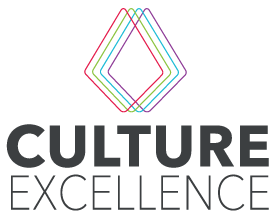We know that culture is important; management theorists who have studied successful businesses over the last 50 years know it too. But we also know that as a concept it can be difficult to grasp, let alone the mammoth task of changing it. According to Dr. Kevin Kane from the University of Salford, one of our Culture Excellence expert panel members, culture is what drives behaviour. It is not the rules or records that a company has in place, but the shared expectations and shared understandings between people that are key. Otherwise, all you’d need would be excellent systems in place and nothing would ever go wrong – which we know is not the case.
Business Personality
Looking across multiple sectors, what we see is that some companies -with no additional resources - are simply doing better than others. They are more innovative, have lower turnover, grow faster, and consistently deliver high-quality products. So, what’s their magic ingredient? The simple (while also incredibly complex) answer is a good culture. The truth is that when failure occurs it is rarely the fault of the systems in place, but the fault of the culture.
In some ways, we can say that the organisational culture is the ‘personality’ of the organisation. The real test comes when there is pressure and stress, and that’s when we get to see the truth of what that personality is really like: is it strong and honest? Or weak and only focused on the bottom line?
The key question then becomes how to achieve a good culture. We wish we could tell you that it’s easy and can be done quickly. Unfortunately however, as with all good things in life it requires time and effort.
Making Mayonnaise
Dr. Kane describes the process with an interesting metaphor - making mayonnaise. You can have the highest quality ingredients and tools to make mayonnaise at home, but if you fail at the process of adding the oil ever so slowly to the eggs you will end up with a curdled mess. And once you’ve achieved the right consistency, if you forget to add vinegar or cold lemon juice to stabilise the mixture then you might as well not have started the process altogether, as the oil and eggs will separate, wasting all your effort.
As you might have gathered, the oil is the action of managers that needs to be dripped in slowly and methodically over time. Managers play a very important part as they must be at the forefront of reinforcing the right messages and acting as role models.
What are the eggs in this metaphor? They’re of course the people in the organisation that we want to shape according to our vision and beliefs. The whisking is the training, rewarding, persuading and reminding them that needs to happen on a continuous basis if we are to achieve the results we want.
Finally, there’s the vinegar that sets the mixture. Of course, there is no magic ingredient in the scenario of cultural change – it’s all about the process being continuous and knowing that it gets easier with time but that we can never get complacent.
As a summary of this metaphor - if you want to change your culture you have to do it methodically, slowly and carefully – considering all of the ingredients and how they impact on each other. There are no quick fixes, but the end result can be absolutely delicious!
To learn more about how we help organisations to assess and improve their safety and quality culture, check out our website - Culture Excellence or send us an email - enquiries@culturexcellence.com. For tips on making a fabulous mayonnaise, our expert panel member and chef Dr Jerry Taylor is always on hand :)

